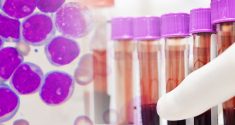A study by the University of California, Irvine, has shown how disruption of the circadian clock, the body’s own 24-hour biological pacemaker, can accelerate the progression of colorectal cancer by impairing the intestinal microbiome and intestinal barrier function. This discovery offers new opportunities for prevention and treatment strategies. The study, published in the journal Science Advances, provides a more comprehensive understanding of how important changes in the function and composition of the gut microbiome occur when the circadian clock is disrupted in the presence of colorectal cancer.
Colorectal Cancer is Also Common in Younger People
Colorectal cancer occurs predominantly from the age of 50, with women usually developing this type of cancer later than men. The median age of onset is 75 years (women) and 72 years (men). Various factors can lead to an excessive proliferation of cells in the intestinal mucosa. If these degenerate, cancer can develop. In addition to genetic factors, nutrition plays a significant role in the development of bowel cancer. A high-fat diet, high in red meat and low in fiber, increases the risk, as do high alcohol and tobacco consumption and a sedentary lifestyle. But a lack of sleep can also be a risk factor. In a study published in the journal “Cancer”, researchers from the University Hospitals (UH) Case Medical Center and Case Western Reserve University School of Medicine found that people who slept an average of less than six hours at night had a nearly 50 percent higher risk of colorectal adenomas compared to people who slept at least seven hours a night. Adenomas are precursors to cancerous tumors and can become malignant if left untreated.
Although the risk of developing the disease increases steadily with age, more and more younger people are being affected by colorectal cancer. According to the National Institutes of Health, there is an alarming increase in early-stage colorectal cancer in young people. Today, nearly 10 percent of colorectal cancer cases are diagnosed in people under the age of 50, and this trend is steadily increasing.
How Disruptions to the Internal Clock Promote Cancer Development

Previous research has shown that disruptions to the circadian clock can affect the progression of colorectal cancer, but until now it was unclear how the biological clock and cancer affect the gut microbiome. Using colon cancer mouse models, the team found that when the circadian clock is disrupted, the diversity and abundance of gut bacteria changes, which is exacerbated by cancer development.
The researchers also noted notable changes in microbial metabolic pathways involved in nucleic acid, amino acid, and carbohydrate metabolism. These functional changes were associated with a decreased amount of intestinal mucus, which normally protects the intestinal lining from harmful bacteria, suggesting that the circadian clock is crucial to maintaining barrier function. Increased intestinal mucosal permeability allows toxins and bacteria to enter the bloodstream, potentially accelerating the progression of cancer.
Further Research Important to Improve Overall Gut Health
“While these findings are important, more work needs to be done,” Masri said. In particular, researchers now want to know whether changes in the timing and abundance of certain gut bacteria over time may directly lead to the development of colorectal cancer. Long-term studies will be crucial to determining whether a circadian misalignment causes cancer and how to prevent it in the future. Deeper insights into the way the body’s internal clock shapes the intestinal ecosystem could pave the way for treatments that not only fight cancer but also improve overall bowel health.







